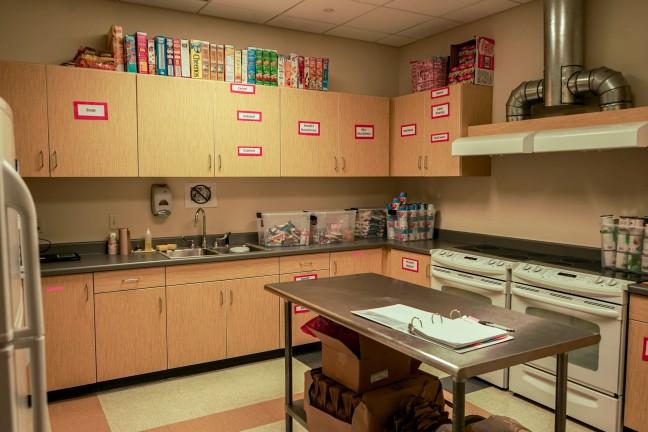Along with increasing costs, many students are facing food insecurity on college campuses across Wisconsin.
One study by the Wisconsin HOPE Lab found that 28 percent of moderate and low-income college students at four-year universities in Wisconsin reported being hungry, but unable to eat because they didn’t have enough money.
Jed Richardson, acting director of the Wisconsin HOPE Lab, said many college students face food insecurity because of high college costs. He also said in recent years more low income students are going to college, so more students deal with food insecurity and homelessness.
Richardson said college students today represent a variety of economic backgrounds, as opposed to the past when most came from moderate to high income families.
“It means that there are different challenges in today’s higher education environment than there might have been 50 years ago,” Richardson said.
To help combat food insecurity problems for UW students, the Associated Students of Madison created The Open Seat food pantry.
Sam Arriozola, The Open Seat’s external director, said the initiative helps acknowledge that student food insecurity and homelessness exist, even if many people are uncomfortable with the topic.
“We not only wanted to continue having this mass resource for students on campus, but we also were trying to address the different issues on campus that people may have not recognized,” Arriozola said.
There is often a stigma in place on those who might be facing food insecurity or hunger, so The Open Seat tries to make it as accessible as possible, Arriozola said. Any student is able to get food from the pantry, the only requirements are a valid student ID and signed liability form.
Programs like F.H. King Students for Sustainable Agriculture and Campus Kitchens have similar goals, Arriozola said, but The Open Seat is the only resource on campus that directly targets student food insecurity.
In the larger Dane County area, food insecurity is also an issue for many families. In Dane County, one in nine households are food insecure, Nick Heckman, a food security policy analyst for Public Health Madison & Dane County, said.
Most of the programs in Madison and Dane County, however, help address the major food insecurity issues for children and adults, but do not specifically target college students, Heckman said.
“It’s difficult to measure and to design interventions for college students, as students often move in and out of the community and are not full-time residents,” Heckman said. “Food is one of the more flexible items in our personal budgets, so people may choose to reduce the amount of food they eat or eat fewer healthy foods so they can put money toward their other expenses.”
There are many programs in Madison and Dane County that address food security for children and families. For instance, the Madison Metropolitan School District Summer Foods Program offers children under 18 free meals over the summer and the Double Dollars incentive program gives Supplemental Nutrition Assistance Program and FoodShare users a dollar for dollar match for money spent at food markets.
But most college students are not eligible for SNAP, which offers assistance to low-income individuals and families, Heckman said. Many students who have trouble finding food often turn to emergency food options like food pantries, community meal sites and other organizations that offer free meals, Heckman added.
With these challenges, Arriozola said The Open Seat helps to give students an option that may not be available to them through city programs. Whatever resource is used, Arriozola said student food insecurity is an important problem and assistance needs to be given.
“You’re a student and if you’re struggling with food that’s a very real problem and that should be addressed,” Arriozola said.
Donations of non-perishable, non-expired cans or other unopened packages are accepted at The Open Seat year-round at seven various donation locations across campus.


